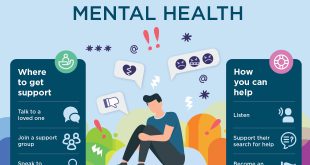To achieve your fitness goals, you must include a well-balanced diet in your daily routine. Get the clean energy your body needs to work at its best. You need to follow the appropriate FIT Guide for health and fitness to stay healthy; for more info, keep reading:
Keeping a journal food
If you want to keep track of your eating habits, journaling food is an excellent tool. Write down what and how much you eat and how you feel afterwards, for just one day. There will be no slacking off! Do the math the following day. Consuming that many calories can be a shock.
You may track your protein, carbohydrate, and fat intake and how well you meet the recommended daily allowance (RDA) for several critical vitamins and minerals using free online trackers or apps.
You need to keep track of what you eat and when you eat it. If you’re curious about whether or not your calorie intake is influenced by your mood or who you’re with when you eat, you’re not alone.
Weigh your food
Pain in the neck at first, measuring becomes second nature after a while. It will also help you realize what foods make you feel full and what foods aren’t worth the calories. You can make better nutritional choices if you are aware of this. A food scale, which measures food in ounces and grams, can be a good investment.
When it comes to keeping track of how much you eat, measuring cups and spoons are an easy way to do so. Using a measuring cup to scoop out a pre-measured serving into your preferred cup or bowl is easy to get your quantities right. The measurements you’ll be able to see, such as one cup, a half cup, and so on, will be more precise.
Make sure you’re eating the correct kinds of food
If you want to reduce weight, your best companions are lean protein, complex carbs, and fiber. It would help if you had lean protein to develop muscle and keep full, such as turkey, nonfat Greek yoghurt, salmon, and egg whites.
Green leafy vegetables, high in fiber and complex carbohydrates, provide you with the fuel you need to burn through your food. Healthy fats, such as olive oil, or plant-based sources high in omega-3 fatty acids, should be consumed in moderation—nuts and seeds, such as walnuts, flaxseeds, and other oils, supply essential fatty acids.
Don’t drink too much
Alcohol has a large number of caloric calories. Even a tiny amount of alcohol can add up to 400 or 500 calories to your daily caloric intake. Some nutritionists have hypothesized that alcohol calories are particularly hazardous for you since the body uses alcohol as fuel first before using other fuels when receiving alcohol.
If you drink and eat simultaneously, the calories you consume may be stored as fat considerably more quickly. For the dedicated athlete, alcohol is a waste of time. I don’t think it’s worth the hassle.
Stay hydrated
When it comes to quenching your thirst, nothing beats water. Drink a lot of water before and after meals to keep your body hydrated. The two cups of water you should drink before an exercise are 16 ounces or around two cups. During your workout, drink a few sips of water. Be sure to stay hydrated during your workout, especially if it’s hot outside. Your body is slightly dehydrated if you feel thirsty. Drink whenever you are thirsty to avoid dehydration.
Reduce eating sweets
Sweeteners like maple syrup and honey and the fructose found in fruits are natural sources of sugar. White sugar that has been refined into a powder gives your body energy. It can promote dental decay and obesity. Avoid adding sugar to your diet by consuming natural delights like a piece of fruit as a dessert.
The Amount and Timing of Meals are essential.
Small, frequent meals are recommended for athletes while training to keep their bodies in optimum condition. To maintain a constant supply of energy and nutrients for muscle growth, eating every two or three hours is beneficial. Avoid eating carbs alone.
Combine them with a protein or fat to counteract the insulin rise caused by a high-carbohydrate meal. After you eat, you may feel hungrier than you did before. Snacking on protein-rich foods is always a good idea. Protein is the best post-workout supplement since it speeds up the process of tissue repair. Before an exercise, drink a lot of water.
 Posting Point
Posting Point

